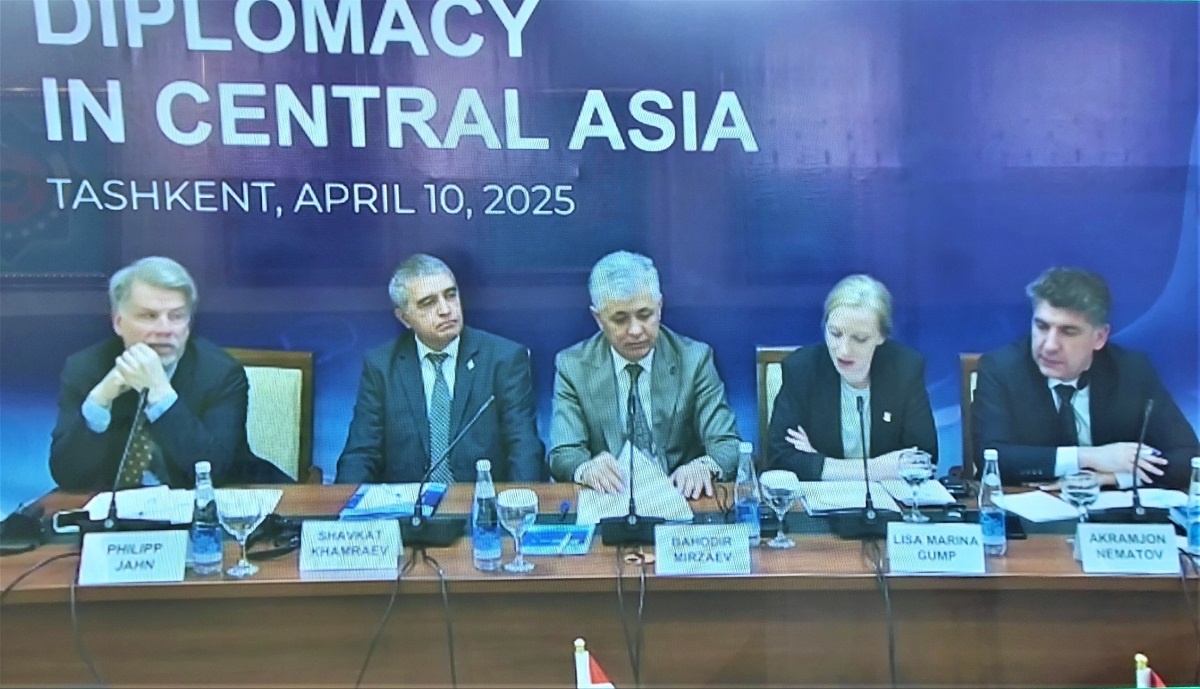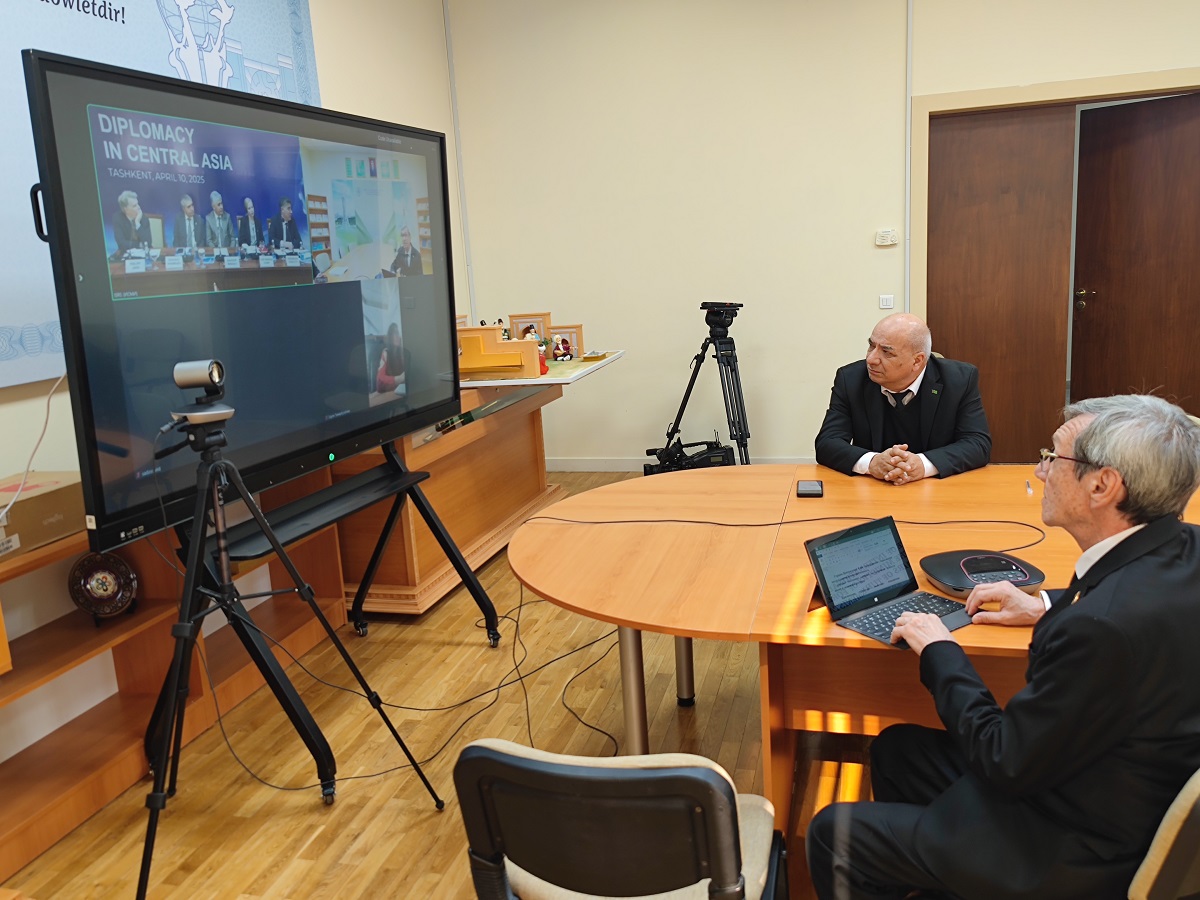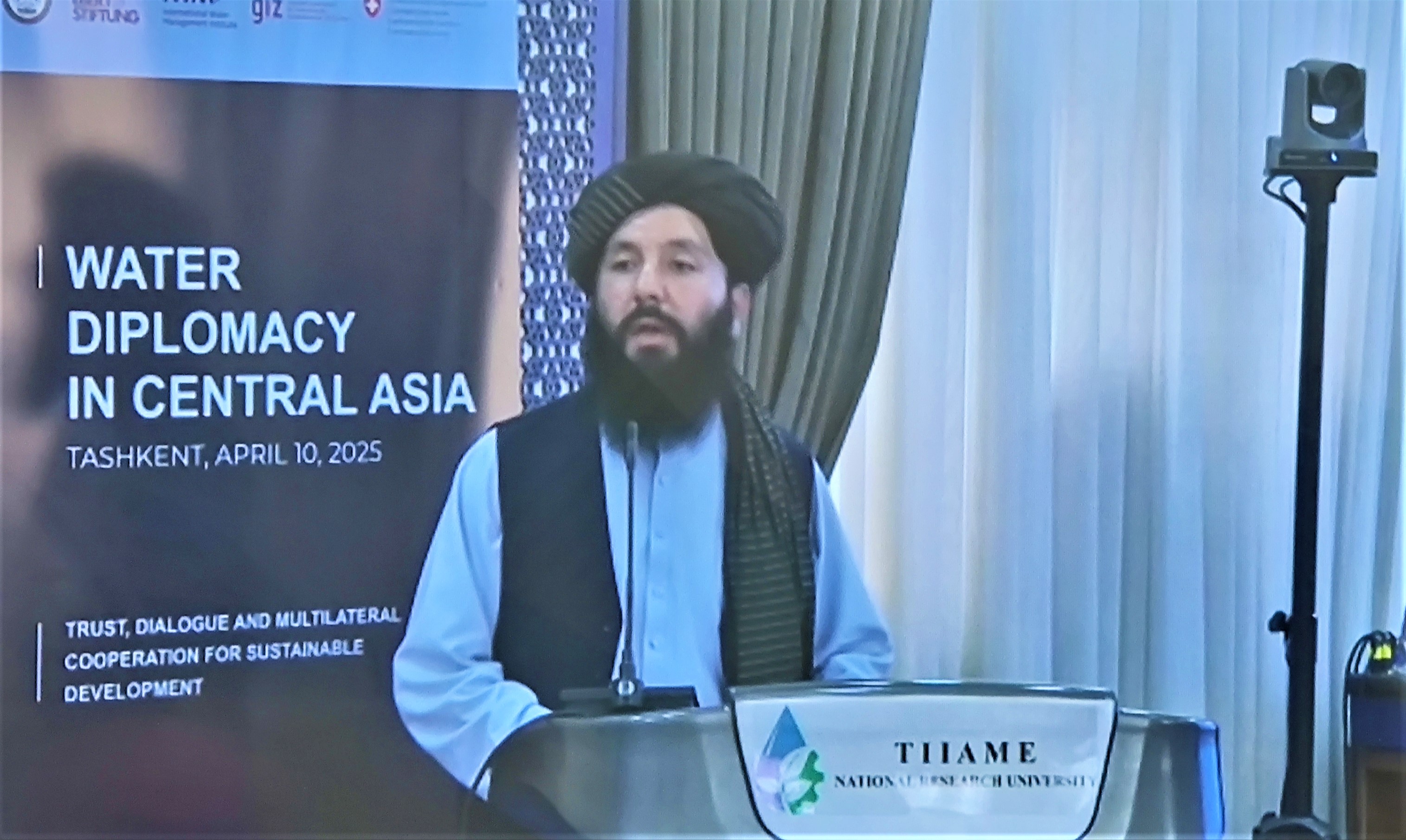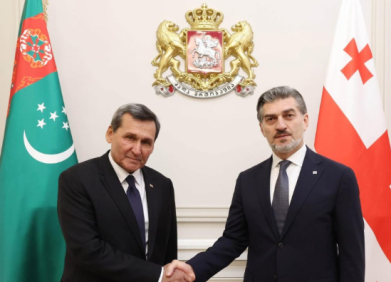Delegation of Afghanistan participated in regional water and climate dialogue for the first time
14.04.2025 | 19:30 |More than 100 representatives of over 10 states, including Turkmenistan and other countries sharing the basins of two major rivers of Central Asia - the Amu Darya and Syr Darya, participated in the international scientific and practical conference on "Water diplomacy in Central Asia: trust, dialogue and multilateral cooperation for sustainable development" held in Tashkent on April 10. The event was organized by the Institute for Strategic and Interregional Studies under the President of the Republic of Uzbekistan (ISRS).
Representatives of 15 international and regional organizations took part in the discussions, including the Regional Center for Preventive Diplomacy for Central Asia, the UN Assistance Mission in Afghanistan, the International Water Management Institute, the Regional Environmental Center for Central Asia, the International Fund for Saving the Aral Sea, the Scientific Information Center of the Interstate Coordination Water Commission and others. More than 20 experts and specialists from strategic research institutes, including the Center for Strategic Research of the Institute of International Relations of the Ministry of Foreign Affairs of Turkmenistan, research institutions and water management agencies of the countries of Central Asia and Afghanistan, made presentations.

The experts who spoke at the conference emphasized that the water problem is relevant not only for Central Asia, but is also becoming more acute on a global scale. According to the World Meteorological Organization, the last two years have been the driest in three decades. Currently, 3.6 billion people face the problem of insufficient access to water at least one month a year. This figure is expected to increase to more than 5 billion people by 2050. The problem is aggravated by the fact that in the period from 2022 to 2024 alone, the largest three-year loss of glacier mass in recorded history was observed. It is predicted that in many regions, “eternal ice” may simply not survive the 21st century, according to the publication of Yangi Uzbekistan.
Experts from Central Asian countries emphasized in their speeches that water diplomacy is not only a way to solve current problems and impending challenges, prevent water conflicts, but should also act as a long-term strategy for organizing a continuous process of interstate interaction that promotes sustainable development and stability throughout the region.

Speaking about the importance of further strengthening cooperation in the water sector as a key factor in ensuring sustainable development in the region, Begench Mommadov, head of the Garagumderyasuvhodjalyk association of the State Water Management Committee of Turkmenistan, said that "Central Asian countries have accumulated unique experience in jointly addressing transboundary water use issues, which has received international recognition." According to him, practice shows that sustainable solutions are possible only by reaching consensus, mutual understanding and taking into account the interests of all parties. "Such forums, which bring together experts to discuss topical issues of water diplomacy and exchange best practices, create a solid foundation for convergence of positions and development of fruitful cooperation in solving transboundary water problems," the Turkmen specialist concluded.

Central Asian experts welcomed the participation of the Afghan delegation in the event and emphasized the importance of involving Afghanistan in the water and climate dialogue in the region. A common opinion was expressed that Afghanistan should participate in the development of optimal scenarios for cooperation and balanced distribution of transboundary water resources. According to experts, this will contribute to increasing the effectiveness of regional management and coordination in the water sector. In general, the forum became evidence of the readiness of the countries of the region to jointly bear responsibility for its well-being, showing an example of inclusive expert, scientific and political dialogue designed to give depth and effectiveness to regional interaction.
ORIENT











